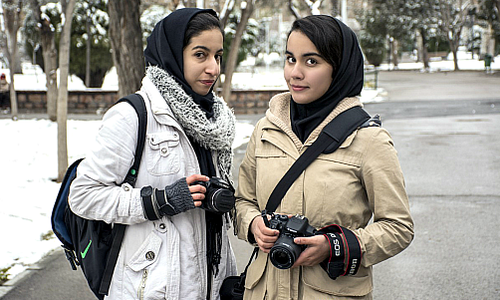Iran Survey Shows: No Confidence in Trump
A first-of-its-kind survey on attitudes towards trade and investment in Iran shows that Iranians acutely aware of President Donald Trump’s rhetoric, have little or no confidence that the U.S. «will live up to its obligations».
A first-of-its-kind survey on attitudes towards trade and investment in Iran conducted by public opinion firm IranPoll in partnership with Bourse & Bazaar, a business media company, points to strong public support in Iran for greater trade with other countries and related economic reforms. A resounding 85 percent of respondents feel that «growing trade and business ties between Iran and other countries» was leading to good or very good outcomes for the country.
The results of the landmark survey will be presented by IranPoll CEO Amir Farmanesh to an audience of over 400 European and Iranian business leaders and policymakers at the 4th Europe-Iran Forum, which takes place on October 3-4 in Zurich, Switzerland.
Crucial Time
The survey, which was conducted in August 2017 among a representative urban sample of 700 Iranians has been published at a crucial time when debate over the Joint Comprehensive Plan of Action (JCPOA), also known as the Iran Deal, reaches a fever-pitch. Acutely aware of President Donald Trump’s rhetoric, 76.7 percent of Iranians have little or no confidence that the United States «will live up to its obligations under the agreement».
By contrast, public confidence in the European commitment to the JCPOA remains strong, with 57 percent of respondents believing the Europeans will stick with the agreement.
Against the backdrop of political uncertainty, economic dividends of the agreement remain unclear. While 43 percent of Iranians report that the «availability of goods made by multinational companies» has increased in Iran since the nuclear deal, majorities say foreign investment and job creation by multinational companies have not increased since the signing of the JCPOA.
Greater Efforts
However, Iranians do see improvements in the way businesses are operating, with both Iranian and multinational firms making greater efforts towards supporting employee training and technological innovation in Iran when compared to five years ago.
As the country reaches out to foreign partners, members of the Iranian public have a strong opinions as to which countries have the most to offer. European countries and Japan are the most desired trading partners among Iranians. The greatest confidence was expressed for German and Japanese investments, with 66 percent and 67 percent respondents stating that there is «a lot» of benefit for Iran when these countries invest.
Swiss Highly Beneficial
French, Swiss, and Italian investments were also seen as highly beneficial. Importantly, European firms have made significant inroads in the Iranian market in the last few months, with notably deals signed by European multinationals such as Total, Renault, Alstom, and Siemens.
At a time when the Trump administration is threatening to de-certify Iran’s compliance with the JCPOA and re-impose broad sanctions on the country, the pace of multinational investment in Iran has frustrated Iranians, with 70 percent of those surveyed suggesting that multinational companies are «moving slower than they could» to invest in Iran.
Fear of the U.S.
When asked what is causing multinational companies to move slowly, 77 percent of respondents identified «fear of the U.S.» as the primary reason. Moreover, Iranians are ambivalent as to whether Iranian and multinational companies will contribute to job creation in the next year, with just 7 percent of respondents believing that Iranian companies will create «a lot of jobs». In comparison, 7 percent believe that multinationals will create «a lot of jobs».
During the period of economic sanctions, China became Iran’s largest trading partner, surpassing the EU. However, while 65 percent of Iranians believe that Chinese investment in Iran is in Iran’s interest, only 19 percent strongly believe that to be the case. That Iranians exhibit significantly less confidence in the benefits of Chinese investment may help explain why the Europeans have been able to conclude the lion’s share of new commercial agreements following the lifting of international sanctions.
Chinese Products Somewhat Bad or Very Bad
The level of confidence in a foreign nation’s role as investor generally correlates with the perception of the quality of that country’s products. German and Japanese products were seen as having the highest quality, with 69 percent and 62 percent of respondents reporting products from those countries as being of «very good» quality.
Chinese products were seen as having the lowest quality, with 61 percent of respondents reporting the quality as «somewhat bad» or «very bad».



























